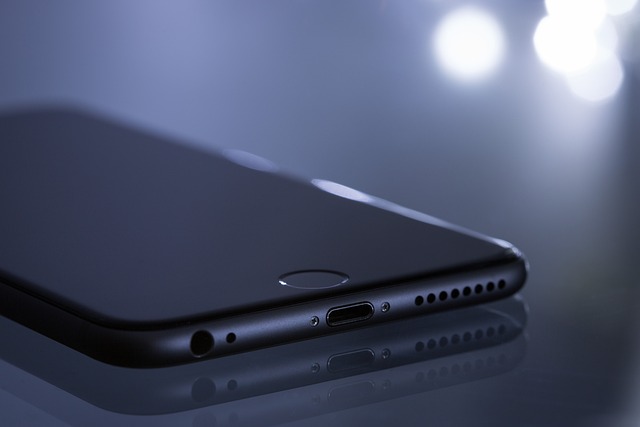“Tired of unwanted autodialed calls? Understand your rights under North Dakota’s strict robocall laws. This comprehensive guide explores when autodialing is legal and when it’s not, walking you through filing a lawsuit against robocallers, potential damages, choosing the right lawyer in ND, common defenses, and real-life success stories. If you’re asking ‘Can I sue for robocalls?’ or seeking a lawyer for robocall issues in North Dakota, this is your go-to resource.”
- Understanding North Dakota's Robocall Laws: A Comprehensive Overview
- When Is Autodialing Legal? Exploring the Exceptions
- The Process of Filing a Lawsuit Against Robocallers in ND
- Damages and Remedies: What You Can Recover in a Robocall Suit
- Choosing the Right Lawyer: Tips for Selecting a Robocall Attorney in North Dakota
- Common Challenges and Defenses in Robocall Litigation in ND
- Success Stories: Real-Life Cases of Robocall Lawsuits in North Dakota
Understanding North Dakota's Robocall Laws: A Comprehensive Overview
When Is Autodialing Legal? Exploring the Exceptions
In North Dakota, autodialing is generally regulated by the Telephone Consumer Protection Act (TCPA). While many states have strict rules against automated phone calls unless explicitly permitted by the caller, ND has slightly different regulations. Autodialing is considered legal in certain circumstances, such as when the caller has obtained prior express consent from the recipient. This consent can be given through a written agreement or during a face-to-face interaction, ensuring individuals are aware of and agree to receive automated calls.
Additionally, there are several exceptions that allow autodialers without explicit permission. These include calls for emergency purposes, calls made by tax agencies, political campaigns, and certain non-profit organizations. Businesses may also use autodialing for marketing purposes if they provide a clear and discernible way for recipients to opt out of future calls. Understanding these legal boundaries is crucial for both consumers considering their rights and businesses navigating the rules, especially when seeking representation from a robocall law firm ND or consulting with robocall lawyers ND to ensure compliance.
The Process of Filing a Lawsuit Against Robocallers in ND
If you’ve received unwanted autodialed calls in North Dakota, you may be wondering if legal action is an option. Filing a lawsuit against robocallers is indeed possible, and the process starts with consulting a qualified attorney who specializes in this area. A lawyer can guide you through the legal framework surrounding robocalls and help determine if your case has merit.
In North Dakota, as in many states, there are laws in place to protect consumers from unsolicited telephone marketing calls, including those made by autodialers. If a robocaller has violated these laws, which often involve obtaining prior express written consent before making automated calls, you may have the right to take legal action. A robocall attorney or law firm can help file a lawsuit on your behalf, seeking damages for any harassment or inconvenience caused by the unwanted calls. They will gather evidence, such as call records and documentation of the robocalls received, to support your case and potentially negotiate a settlement with the offending party.
Damages and Remedies: What You Can Recover in a Robocall Suit
Choosing the Right Lawyer: Tips for Selecting a Robocall Attorney in North Dakota
Choosing the right legal counsel is a crucial step when considering taking action against autodialer misuse. If you’re in North Dakota and exploring your options to sue for robocalls, here are some tips to guide your search:
First, ensure the lawyer or law firm specialises in telecommunications law or has experience dealing with cases related to robocalls. Look for professionals who have a proven track record of successfully representing clients in similar situations. You can verify this by checking their website, reading client testimonials, and reviewing case outcomes. Additionally, consider whether the firm offers free consultations; this allows you to discuss your case without any financial obligation, ensuring it aligns with your needs and goals. Reputable lawyers will be transparent about their fees and services, providing you with peace of mind from the outset.
Common Challenges and Defenses in Robocall Litigation in ND
In North Dakota (ND), navigating robocall litigation presents unique challenges for both consumers and legal professionals. One common hurdle is proving intent, as many automated dialers lack human oversight, making it difficult to attribute liability. Defendants often argue that these calls were unintended or that they had permission, which can be challenging to rebut without concrete evidence.
Another defense frequently employed by businesses is the claim of good faith reliance on established calling practices. They might assert that their robocall operations adhere to legal guidelines, such as those set by the Telephone Consumer Protection Act (TCPA). Consumers and their lawyers in ND must counteract these defenses with robust evidence demonstrating harassment or unauthorized calls. Engaging a reputable robocall law firm ND equipped with expertise in TCPA regulations can significantly enhance a case’s strength.






